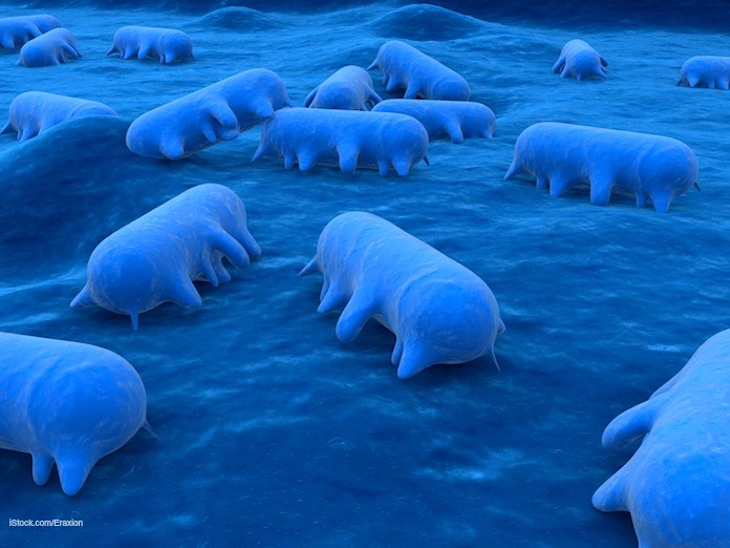The cooked shrimp Salmonella outbreak announced by the FDA last week is not the first time seafood has been linked to a Salmonella outbreak. But does seafood naturally contain Salmonella bacteria, like chickens and sometimes beef? If not, how is seafood contaminated with this pathogen?

Seafood such as shrimp and tuna do not naturally carry Salmonella bacteria, unlike poultry and other warm-blooded animals, according to a 2005 National Library of Medicine study published in the Journal of Food Protection. That study states, “Salmonella is not part of the natural flora of the shrimp culture environment nor is it inherently present in shrimp grow-out ponds. The occurrence of Salmonella bacteria in shrimp from aquaculture operations is related to the concentration of fecal bacteria in the source and grow-out pond water.”
In other words, the sanitary conditions under which the shrimp are grown and harvested play a huge role in whether or not the shrimp will be safe to eat. More than 90% of the shrimp consumed in the United States is imported from other countries, mostly Southeast Asia and Central America. That is not to say that those countries have inherently unsafe food. There are many points along the line from growing shrimp to harvest to processing and shipping where contamination can occur.
One other point was brought up in Food Poisoning Bulletin’s interview with Dr. Ted Johnson of St. Olaf College in 2012. He said that every time meat or seafood is frozen, it becomes a better culture for bacteria. And if these foods are thawed and frozen again, the more bacteria can grow in it. The shrimp were sold frozen, then thawed before sale.
There are currently six people who live in Nevada and Arizona who are sick in the Avanti Foods cooked shrimp Salmonella outbreak. Two people have been hospitalized because they are so sick. A recall of frozen precooked imported shrimp has been issued by Avanti Foods involving several well known brands such as 365, Meijer, and Hannaford.
Symptoms of a Salmonella food poisoning infection include a fever, nausea, vomiting, abdominal and stomach cramps, and diarrhea that may be bloody. if you have eaten shrimp lately and have been ill with those symptoms, see your doctor. You may be part of this cooked shrimp Salmonella outbreak.

If you or a loved one have been sickened with a Salmonella Weltevreden infection after eating recalled frozen Avanti cooked shrimp, please contact our experienced lawyers, including Fred Pritzker, for help at 1-888-377-8900 or 612-338-0202.




